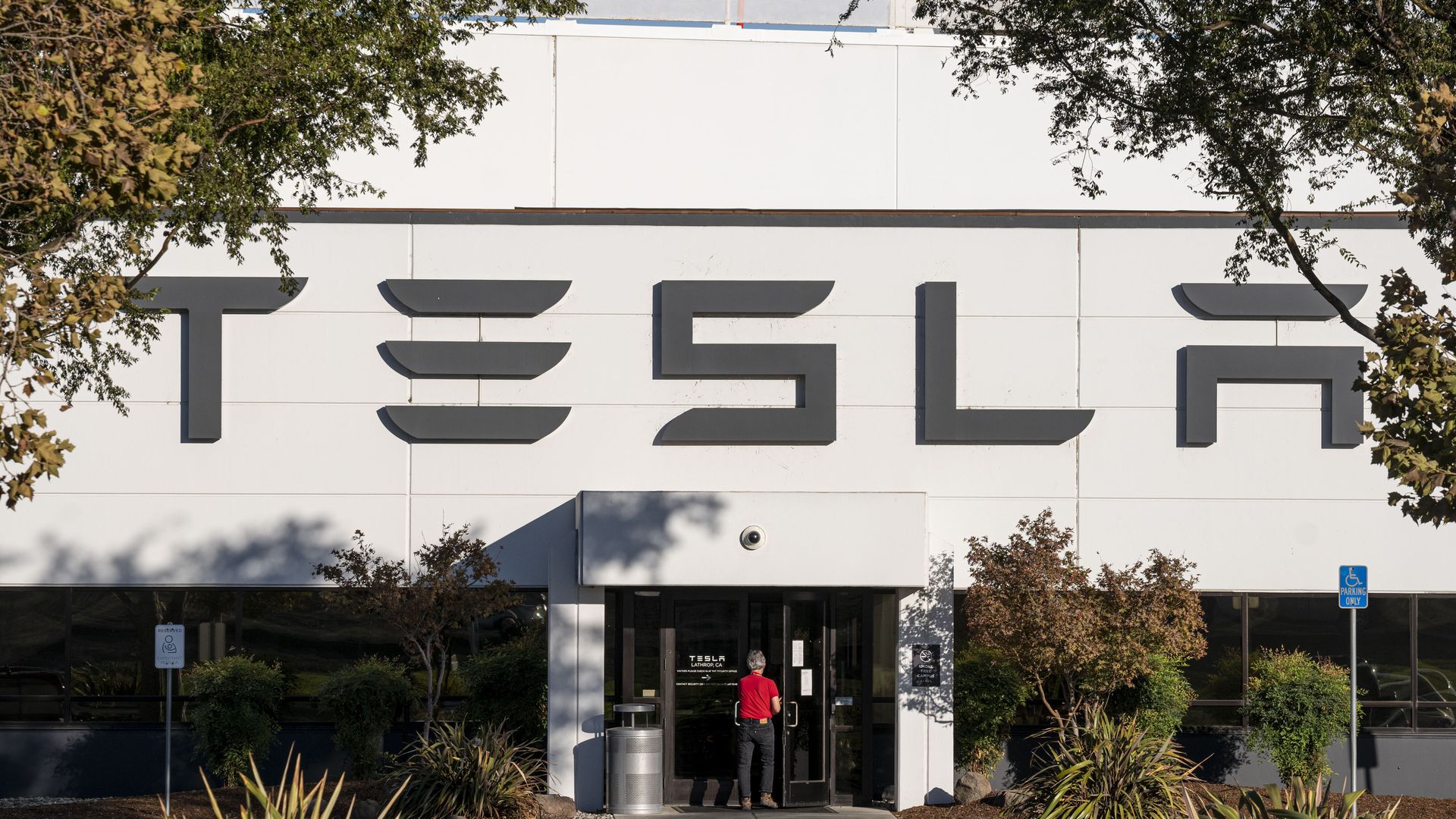Oct 13, 2021 - Economy
U.S. questions Tesla over lack of recall after self-driving update
Add Axios as your preferred source to
see more of our stories on Google.

A person entering a Tesla factory in Lathrop, California, in September 2021. Photo: David Paul Morris/Bloomberg via Getty Images
